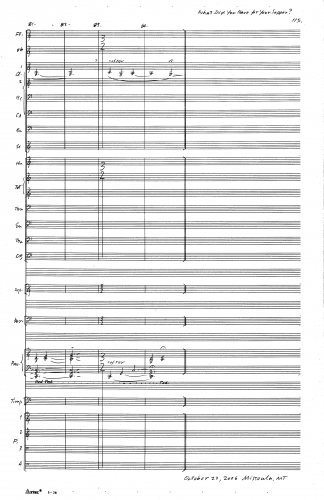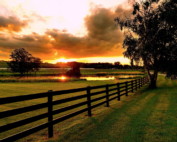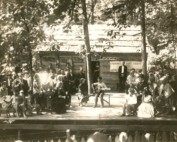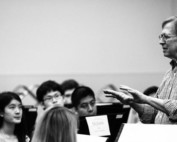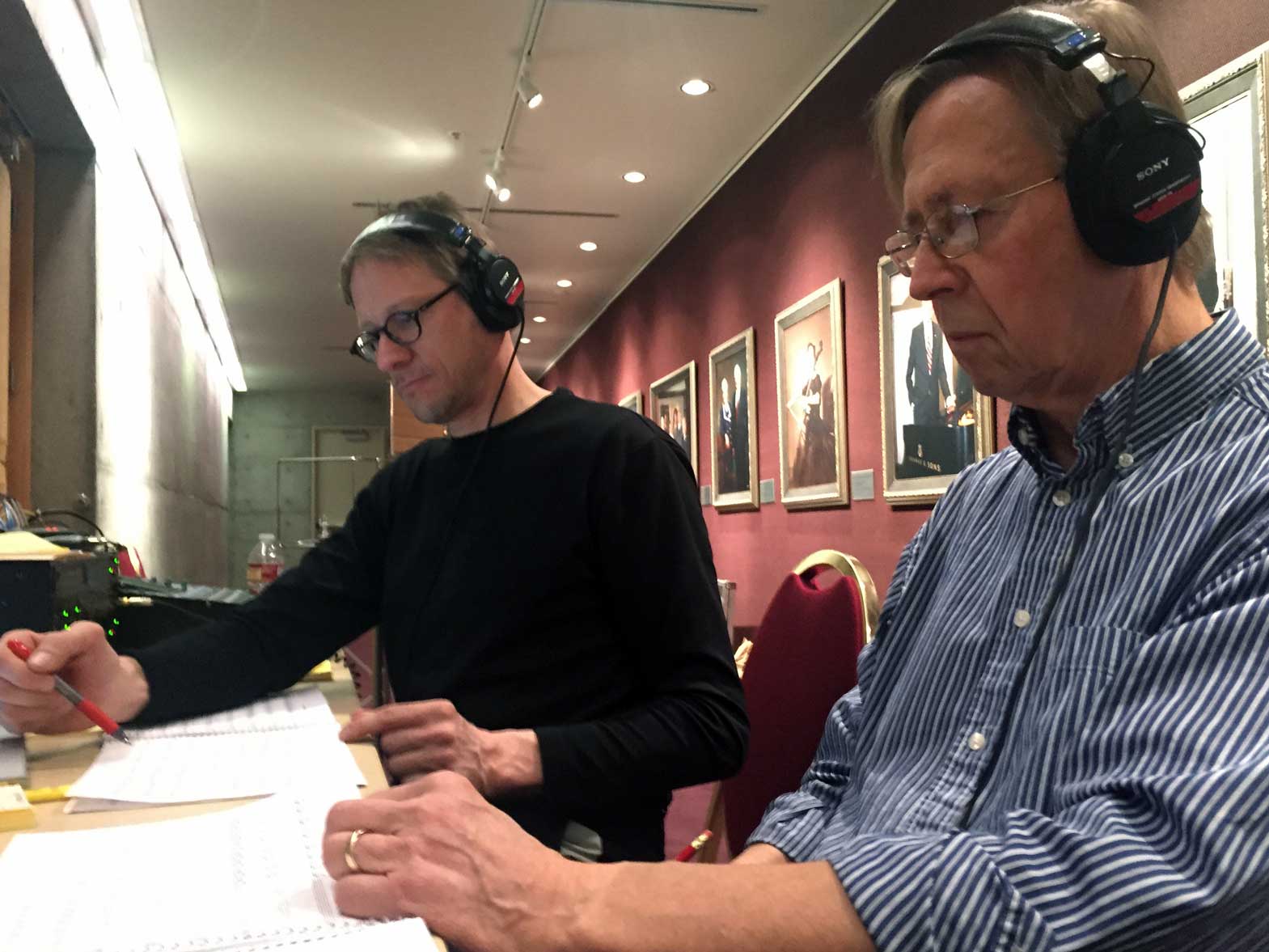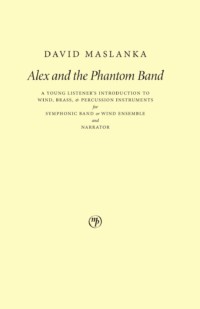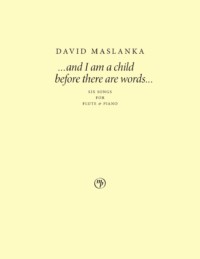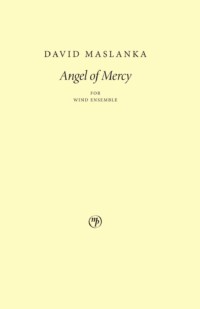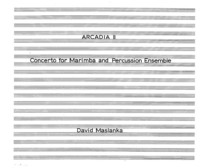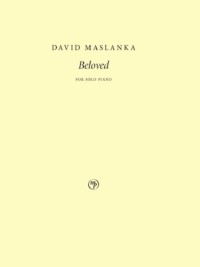Project Description
Wind Ensemble with Baritone narrator/singer and Soprano folk-song singer
2006
41 min.
Grade 6
Listen Now
Illinois State University Wind Symphony, Stephen Steele, cond.
On the album Maslanka: A Carl Sandburg Reader (2009)
Instrumentation
Solo Bar Solo S | Fl-2(1»AFl 2»Picc) Ob-2 BbCl-2 BCl CACl Bsn-2(2»Cbsn) SSx | Hn-2 Tpt-2(2»Flug) Tbn BTbn Euph Tuba DB | Pno Timp Perc-4
- Solo Baritone: Narrator/Singer
- Solo Soprano Folk Singer
- Flute (2) (1 dbl. Alto Flute, 2 dbl. Piccolo)
- Oboe (2)
- Clarinet in B♭ (2)
- Bass Clarinet in B♭
- Contra Alto Clarinet in E♭
- Bassoon (2) (2nd dbl. Contrabassoon)
- Soprano Saxophone
- Horn in F (2)
- Trumpet in B♭ (2) (2 dbl. Flugelhorn)
- Trombone
- Bass Trombone
- Euphonium
- Tuba
- Double Bass
- Piano
- Timpani
- Required Percussion (4 players)
- Bass Drum (2)
- Iron Theater Curtain Weight (susp.) (2)
- Marimba
- Orchestra Bells
- Tenor Drum (2)
- Tom Toms (1 high, 4 med.)
- Vibraphone
- Xylophone
- Anvil
- Blocks of Wood (4)
- Crash Cymbals
- Snare Drum
- Temple Blocks
- Cabasa
- Hi-Hat Cymbal
- Suspended Cymbal (lg.)
- Tam-tam
- Wood Block (2: high, low)
Movements
- Masses
- It Rained a Mist
- Onion Days
- Tramp On The Street
- Mag
- Limited
- The Train is A-Coming
- Happiness
- Dance Interlude
- I’m Going To Join The Army
- Johnny Get Your Hair Cut
- Wars
- Jaws
- Mary Had A Baby
- Rat Riddles
- Bath
- Our Prayer Of Thanks
- What Did You Have For Supper
Commissioned by
- Illinois State University Office of Advancement
- Illinois State University Office of Student Affairs
- Illinois State University College of Fine Arts
- Illinois State University School of Music
- Illinois State University Band
Premiere
Description
Program Note
In “A Carl Sandburg Reader” I have tried to let Sandburg’s voice tell his own take on the human condition – the masses, the poor, war, cynicism, faith, hope, acceptance – and to tell the story as well with his beloved folk songs. For this auspicious occasion of the 150th anniversary of the founding of Illinois State University I wanted a musical celebration, using the words of a native son of the Illinois prairie, that would speak deeply to our past, our present, and our future.
Poems by Carl Sandburg
Let us ask ourselves: What is truth? What do you or I know?
How much do the wisest of the world’s men know about
where the massed human procession is going?
Among the mountains I wandered and saw blue haze and red crag and was amazed;
On the beach where the long push under the endless tide maneuvers, I stood silent;
Under the stars on the prairie watching the Dipper slant over the horizon’s grass, I was full of thoughts.
Great men, pageants of war and labor, soldiers and workers mothers lifting their children – these all I toughed, and felt the solemn thrill of them.
And then one day I got a true look at the Poor, millions of the poor, patient and toiling; more patient then crags, tides, and stars; innumerable, patient as the darkness of night – and all broken, humble ruins of nations.
Mrs. Gabrielle Giovannitti comes along Peoria Street every morning at nine o’clock
With kindling wood piled on to of her head, her eyes looking straight ahead to find the way for her old feet.
Her daughter-in-law, Mrs. Pietro Giovannitti, whose husband was killed in a tunnel explosion through the negligence of a fellow-servant,
Works ten hours a day, sometimes twelve, picking onions for Jasper on the Bowmanville road.
She takes a street car at half-past five in the morning, Mrs. Pietro Giovannitti does,
And gets back from Jasper’s with cash for her day’s work, between nine and ten o’clock at night.
Last week she got eight cents a box, Mrs. Pietro Giovannitti, picking onions for Jasper,
But this week Jasper dropped the pay to six cents a box because so many women and girls were answering the ads in the Daily News.
Jasper belongs to an Episcopal church in Ravenswood and on certain Sundays
He enjoys chanting the Nicene creed with his daughters on each side of him joining their voices with his.
If the preacher repeats old sermons of a Sunday, Jasper’s mind wanders to his 700-acre farm and how he can make it produce more efficiently
And sometimes he speculates on whether he could word an ad in the Daily News so it would bring more women and gils out to his farm and reduce operating costs.
Mrs. Pietro Giovannitti is far from desperate about life; her joy is in a child she know will arrive to her in three months.
And now while these are pictures for today there are other pictures of the Giovannitti people I could give you for tomorrow,
And how some of them go to the county agent on winter mornings with their baskets for beans and corneal and molasses.
I listen to fellows saying here’s good stuff for a novel or it might be worked up into a good play.
I say there’s no dramatist living can put old Mrs. Gabrielle Giovannitti into a play with that kindling wood piled on top of her head coming along Peoria street nine o’clock in the morning.
I wish to God I never saw you, Mag.
I wish you never quit your job and came along with me.
I wish we never bought a license and a white dress
For you to get married in the day we ran off to a minister
And told him we would love each other and take care of each other
Always and always long as the sun and rain lasts anywhere.
Yes, I’m wishing now you lived somewhere away from here
And Was a bum on the bumpers a thousand miles away dead broke
I wish the kids had never come
And rent and coal and clothes to pay for
And a grocery man calling for cash,
Everyday cash for beans and prunes.
I wish to God I never saw you, Mag.
I wish to God the kids had never come.
I am riding on a limited express, one of the crack trains of the nation.
Hurtling across the prairie into blue haze and dark air go fifteen all-steel coaches holding a thousand people.
(All the coaches shall be scrap and rust and all the men and women laughing in the diners and sleepers shall pass to ashes.)
I ask a man in the smoker where he is going and he answers: “Omaha”.
I asked professors who teach the meaning of life to tell me what is happiness.
And I went to famous executives who boss the work of thousands of men.
They all shook their heads and gave me a smile as though I was trying to fool with them.
And then one Sunday afternoon I wandered out along the Desplaines river
And saw a crowd of Hungarians under the trees with their women and children and a keg of beer and an accordion.
In the old wars drum of hoofs and the beat of shod feet.
In the new wars hum of motors and the tread of rubber tires.
In the wars to come silent wheels and whirr of rods not yet dreamed out in the heads of men.In the old wars clutches of short swords and jabs into faces with spears.
In the new wars long-range guns and smashed walls, guns running a spit of metal and men falling in tens and twenties.
In the wars to come new silent deaths, new silent hurlers not yet dreamed out in the heads of men.In the old wars kings quarreling and thousands of men following.
In the wars to come kings kicked under the dust and millions of men following great causes not yet dreamed out in the heads of men.
Seven nations stood with their hands on the jaws of Death.
It was the first week in august, Nineteen Hundred Four-Teen.
I was listening, you were listening, the whole world was Listening,
And all of us hear the Voice murmuring:
“I am the way and the light,
He that believeth on me
Shall not perish
But shall have everlasting life.”
Seven nations listening heard the Voice and answered:
“Oh Hell!”
The jaws of death began clicking and they go on clicking:
“Oh Hell!”
There was a gray rat looked at me
with green eyes out of a rat hole.“Hello, rat”, I said,
“Is there any chance for me
to get onto the language of the rats?”And the green eyes blinked at me,
blinked from a gray rat’s rat hole.“Come again,” I said,
“Slip me a couple of riddles;
there must be riddles among the rats.”And the green eyes blinked at me
and a whisper came from the gray rathole:
“Who do you think you are and what is a rat?
Where did you sleep last night and why do you sneeze on Tuesdays? And why is the grave of a rat no deeper than the grave of a man?”And the tail of the green-eyed rat
whipped and was gone at a gray rathole.
A man saw the whole world as a grinning skull and crossbones. The rose flesh of life shriveled form all faces. Nothing counts. Everything is fake. Dust to dust and ashes to ashes and then an old darkness and a useless silence. So he saw it all. Then he went to a Mischa Elman concert. Two hours waves of sound beat on his eardrums. Music washed something or other inside him. Music broke down and rebuilt something or other in his head and heart. He joined in five encores for the young Russian Jew with the fiddle. When he got outside his heels hit the sidewalk in a new way. He was the same man in the same world as before. Only there was a singing fire and a climb of roses everlastingly over the world he looked on.
For the gladness here where the sun is shining at evening on the weeds at the river,
Our prayer of thanks.For the laughter of children who tumble barefooted and bareheaded in the summer grass,
Our prayer of thanks.For the sunset and the stars, the women and the arms that hold us,
Our prayer of thanks.God,
If you are deaf and blind, if this is all lost to you,
God, if the dead in their coffins amid the silver handles on the edge of town, or the reckless dead of war days thrown unknown in pits, if these dead are forever deaf and blind and lost,
Our prayer of thanks.God,
The game is all your way, the secrets and the signals and the system; and so far the break of the game and the first play and the last.
Our prayer of thanks.
Further Reading
Maslanka Weekly: Best of the Web – No. 70, Evening
Maslanka Weekly highlights excellent performances of David Maslanka’s music from around the web. This week, we feature three of David’s compositions that traverse the evening landscape: "Evening Song" from Song Book for Alto Saxophone and Marimba, Evening Song for Horn and Piano, and "Our Prayer of Thanks" from A Carl Sandburg Reader.
Maslanka Weekly: Best of the Web – No. 50, Folk Songs
Maslanka Weekly highlights excellent performances of David Maslanka’s music from around the web. This week, we feature performances of three of David's works inspired by folk songs: Symphony No. 7, "Johnny Get Your Hair Cut" from A Carl Sandburg Reader, and The Seeker.
David Maslanka: Works for Younger Wind Ensembles
Here are more than twenty works for wind ensemble, arranged in approximate ascending order of difficulty, with commentary by David Maslanka
Recording the Wind Ensemble Music of David Maslanka
Mark Morette of Mark Custom Recording shares his extensive experience in recording wind ensembles.
